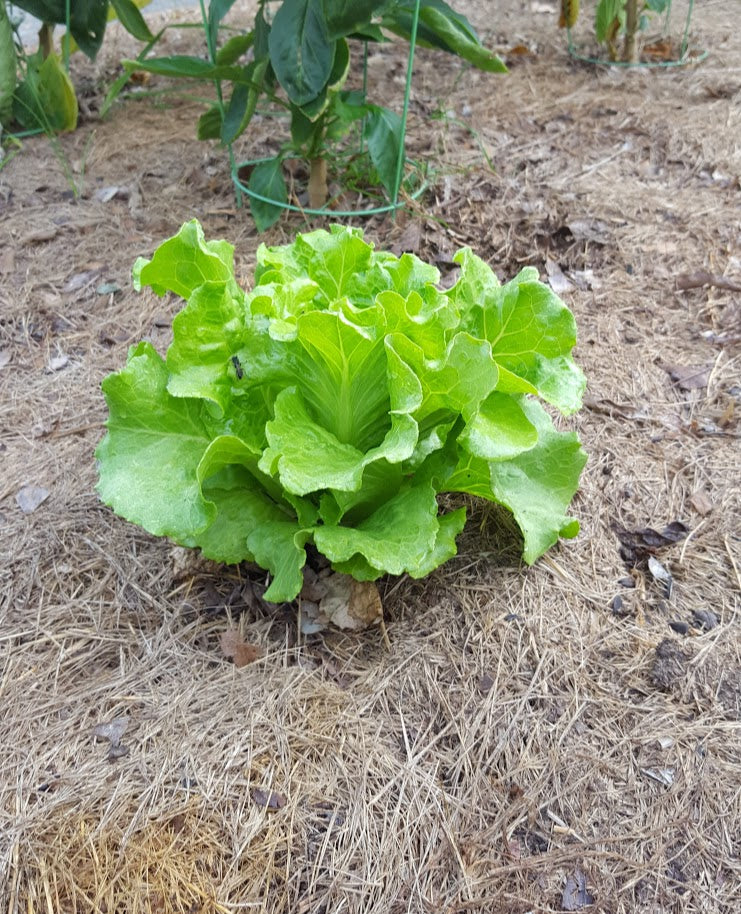All things are lawful, but not all things are helpful. This is a huge point in gardening. Somethings just are too much labor and fighting against the natural structure of how plants obtain nutrients, coexist with other organisms, and flourish within a set environment. There a numerous ways to garden, yet taking it back to the delicate balance of how nature was intended to operate really enhances yields, productivity, and flavor.

Soil is an active compilation of mineral, organic matter, and organisms. It is within this biosphere that plants obtain the sustenance needed to grow, bud, flower, and fruit. It is this structural system that really determines how a plant will operate and perform. If the soil is deficient, void of organisms, or full of organisms determental to plant growth there is an unbalancement of coexisting thus the soil will not in turn be very productive. Luckily, there can be changes implemented to transition this dead soil back to life.

Organisms like beneficial strains of bacteria and fungus, earthworms, and beneficial nematodes are all affected by the composition and materials within a soil. Organic matter is the key component that these organisms need to flourish. One of the most common garden techniques is the utilization of commerical fertilizer mixes like 10-10-10, that while they provide the plant essential nutrients, they really don't provide much sustenance for the little workhorses in the soil. Compost, manures, fish emulsions, and grass clippings are just a few of the many forms of organic matter you can add to your garden to make these little guys happy. When, the organisms in the soil are happy they turn out more plant utilizable fertilizer with less input; thus you save money and your garden or field is more productive.

In our organic garden we have been mulching with grass clippings for almost three years and before that we used straw for about ten years. As mulch decays it becomes organic matter. The organic matter in our garden is very deep and we haven’t tilled the garden in more than a decade. The soil remains loose because of the activity of earthworms and the overall porous nature of organic matter. We fertilize plants when transplanting with more organic matter like, kelp meal, feather meal, bone meal, and azomite. Adding these slow release forms of organic matter to a soil teeming with microrganisms ready to break them down into a plant usable form, is key to success. Our plants are highly productive with thick stalks, large fruits, and the overall taste is much better than vegetables grown in high mineral soils fed with commerical synthetic fertilizers. The best thing of all is these organic fertilizers are longer lasting, don’t need reapplying with excessive wet weather, and are cheaper in the long run; if not already from the start.
In a garden that has been tilled for years or is brand spanking new you can start by adding a couple inches of compost or aged manure. This is a great place to start and you can lightly till it to your existing soil to add more air space which will increase microorganism populations. Then mulch the garden before or after planting your vegetables with straw or grass clippings. We love grass clippings because they have more nitrogen and mat together to suppress weeds. If you get grass clippings from an outside souce make sure the lawn maintenance doesn't involve herbicides like 2,4-D, as it can kill or limit your veggies. As the mulch breaks down you will have to reapply. We normally reapply mulch a couple times of year. We have permanent aisleways and only mulch the beds for ease, but the sky really is the limit when it comes to creating your garden setup. You should never have to till again, water as often, and your fertilizer bill will be reduced.

All in all, make your garden about the little guys in the soil and they will reward you with bountiful crops and bold blooms. You'll find that with each passing year it gets easier and easier to maintain. A great reward as you can enjoy the fruits of your labor that much more!
Happy Gardening,
David Burton


2 comments
We have an area in our yard that doesn’t get full sun due to a large maple tree. Which vegetables can I plant in that area. Thanks for your help. Ron Lepine
Very informative. Can you write an article on the best way to improve soil ph.